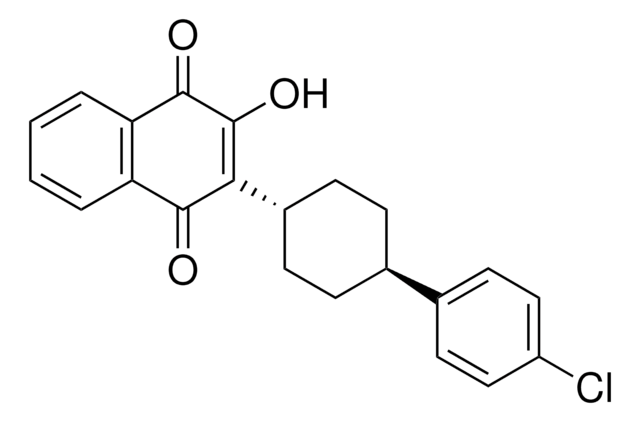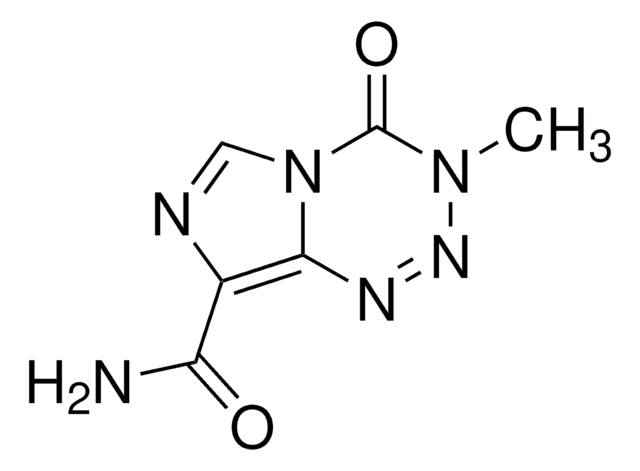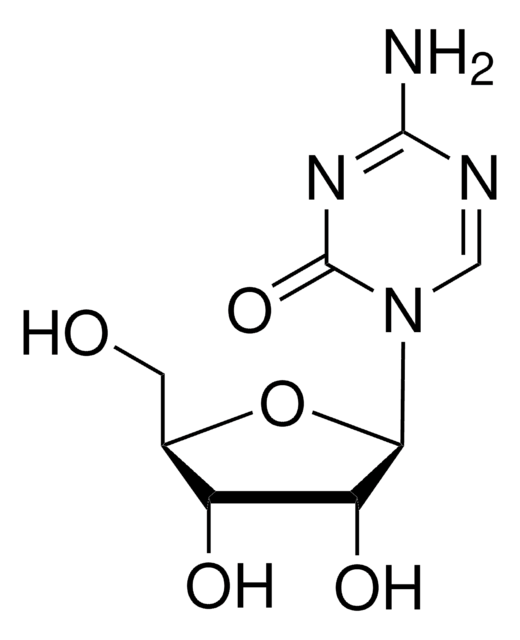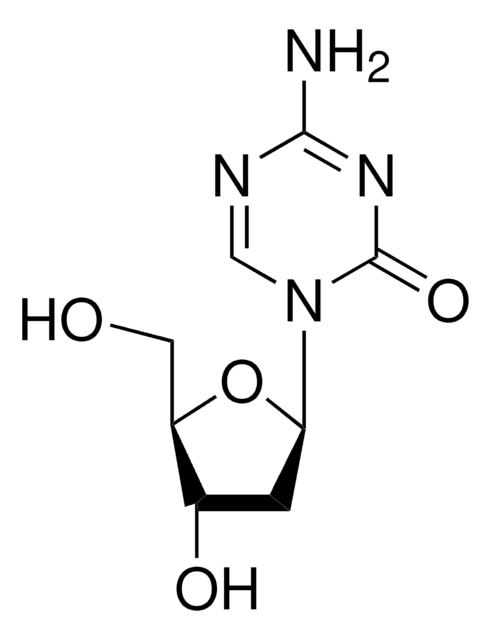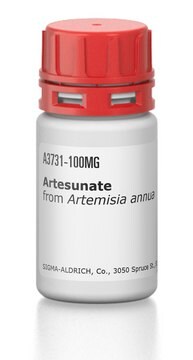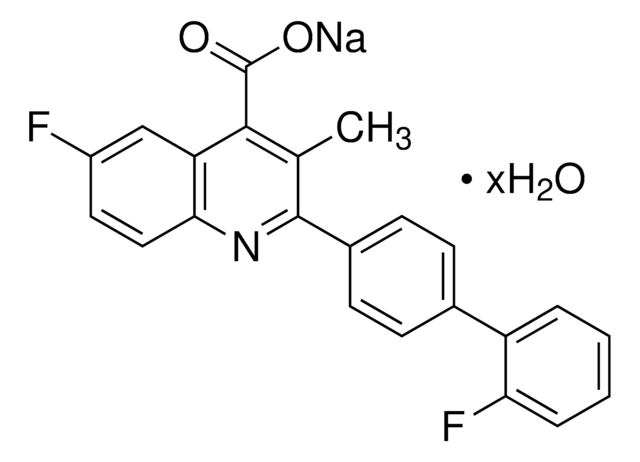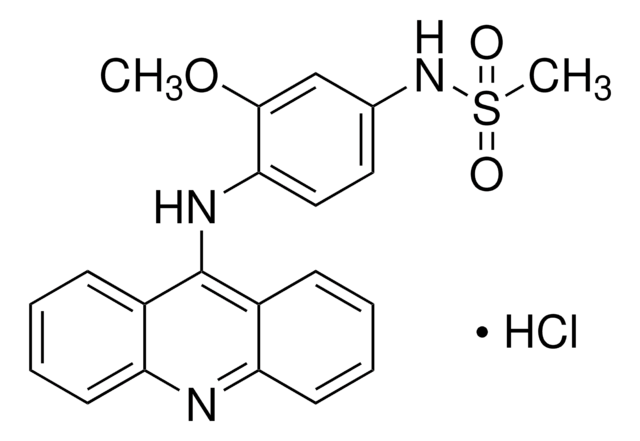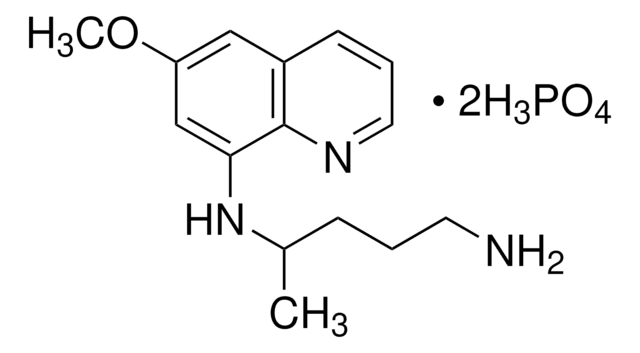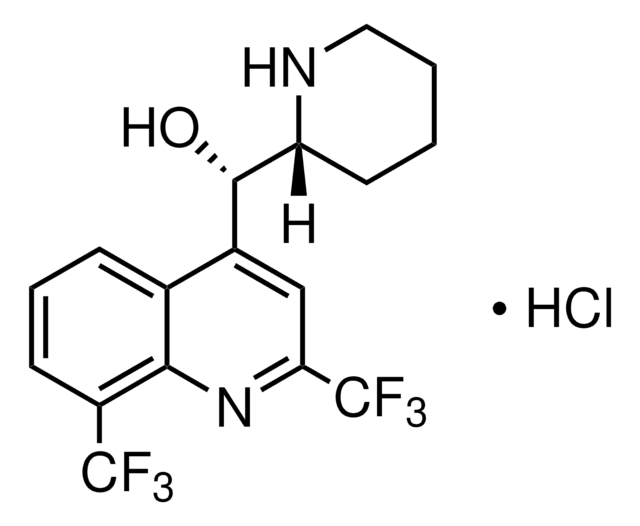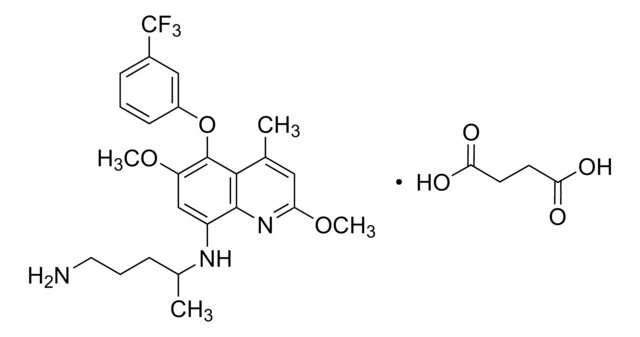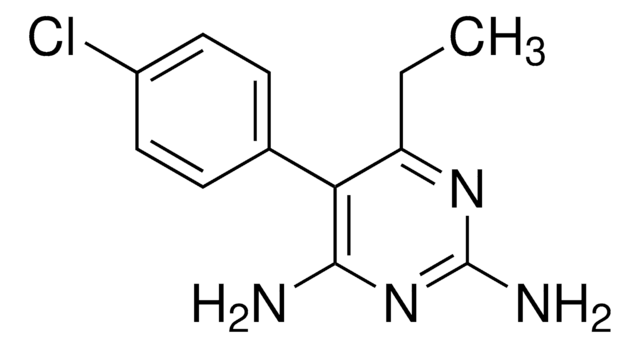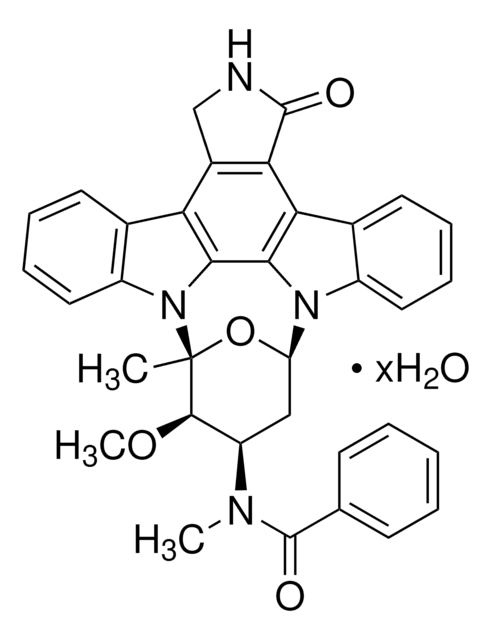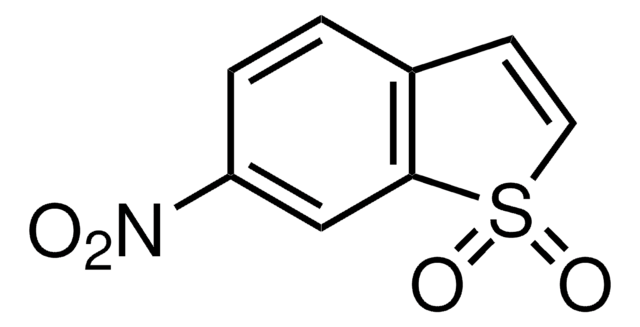A7986
Atovaquone
≥98% (HPLC), powder, anti-protozoal agent
Synonym(s):
Mepron, trans-2-[4-(4-Chlorophenyl)cyclohexyl]-3-hydroxy-1,4-naphthalenedione
About This Item
Recommended Products
product name
Atovaquone, ≥98% (HPLC)
assay
≥98% (HPLC)
form
powder
color
yellow
solubility
DMSO: >10 mg/mL
originator
GlaxoSmithKline
storage temp.
−20°C
SMILES string
OC1=C([C@H]2CC[C@@H](CC2)c3ccc(Cl)cc3)C(=O)c4ccccc4C1=O
InChI
1S/C22H19ClO3/c23-16-11-9-14(10-12-16)13-5-7-15(8-6-13)19-20(24)17-3-1-2-4-18(17)21(25)22(19)26/h1-4,9-13,15,26H,5-8H2/t13-,15-
InChI key
KUCQYCKVKVOKAY-CTYIDZIISA-N
Looking for similar products? Visit Product Comparison Guide
Application
Biochem/physiol Actions
Features and Benefits
Storage Class
11 - Combustible Solids
wgk_germany
WGK 3
flash_point_f
Not applicable
flash_point_c
Not applicable
Certificates of Analysis (COA)
Search for Certificates of Analysis (COA) by entering the products Lot/Batch Number. Lot and Batch Numbers can be found on a product’s label following the words ‘Lot’ or ‘Batch’.
Already Own This Product?
Find documentation for the products that you have recently purchased in the Document Library.
Customers Also Viewed
Related Content
We offer agonists, antagonists, modulators and other bioactive small molecules for immune system signaling target identification and validation, as well as a variety of antibiotics, antivirals, and antifungals.
Our team of scientists has experience in all areas of research including Life Science, Material Science, Chemical Synthesis, Chromatography, Analytical and many others.
Contact Technical Service